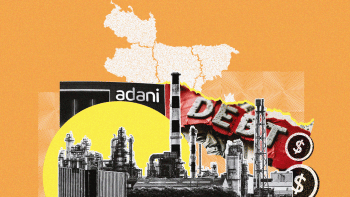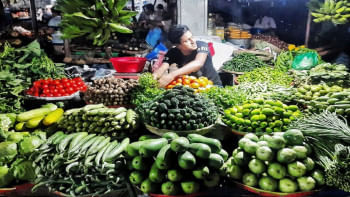Plan ahead for steady power supply

Amid the ongoing gas crisis in the country that has hit us on several fronts, including power generation, it is worrying that the coal-based power plants are also scaling down production, owing to a number of issues. According to a report in this daily, these power plants have been reducing production, and in some cases completely shutting down, due to financial, legal or technical difficulties. This has led to increased power outages in the country, especially in rural areas, affecting not just households but also businesses.
Per the report, Bangladesh gets power from seven coal-fired power plants, which have a combined generation capacity of 7,099MW. But lately they have been producing less than half—around 3,199MW. Production in Matarbari and Barishal power plants are completely off, while Rampal, SS Power, and Barapukuria are operating at a significantly reduced capacity. These power plants have been hit with either coal shortage, mechanical problems or maintenance issues. Only the Payra power plant has been operating at full capacity. Meanwhile, the Adani Godda power plant in India's Jharkhand cut its power supply by half on October 31 and has threatened to stop supply completely if Bangladesh does not clear its outstanding dues by November 7.
As a result, except for Barishal division, which is covered by Payra, the country has been experiencing increased power outages, which are impacting people's lives and livelihoods, especially in the rural areas. One onion trader in Dinajpur said he lost half of his imported produce due to frequent load-shedding. A rice miller in Mymensingh said his mill's output dropped significantly due to four to five hours of power cut daily. This does not bode well for the country.
The press secretary to the chief adviser said the government was working to expedite payment to Adani. This ought to help with the resumption of supply from Godda power plant. But what about the ones that can't operate due to coal shortage? Officials said coal procurement had been delayed by legal issues that were raised due to a change of supplier. They said it's unlikely that the Matarbari plant would resume production before mid-December. Given the time of the year, when power consumption is typically less due to reduced demand, we may not see the situation take a critical turn now. However, if it continues to persist, we are looking at a potentially worse situation from March onwards when the temperature is supposed to rise, and especially if the gas shortage continues. The government needs to figure out—and quickly—how to resolve the current situation. It should plan ahead to keep the power supply across the country stable and ensure that further power shortages are averted.


 For all latest news, follow The Daily Star's Google News channel.
For all latest news, follow The Daily Star's Google News channel. 










Comments